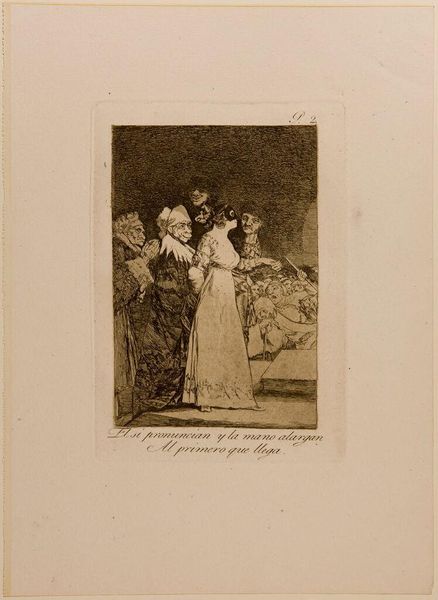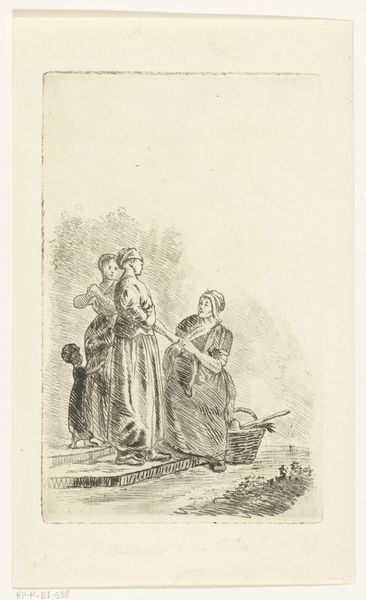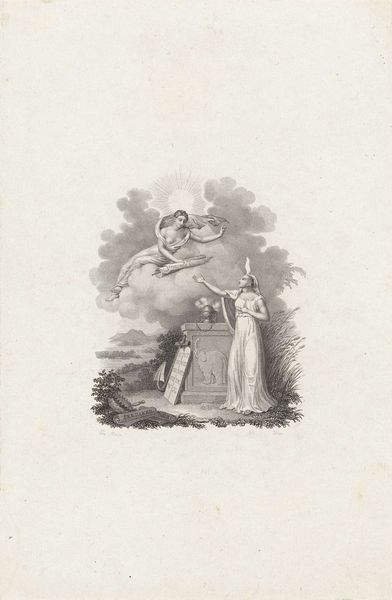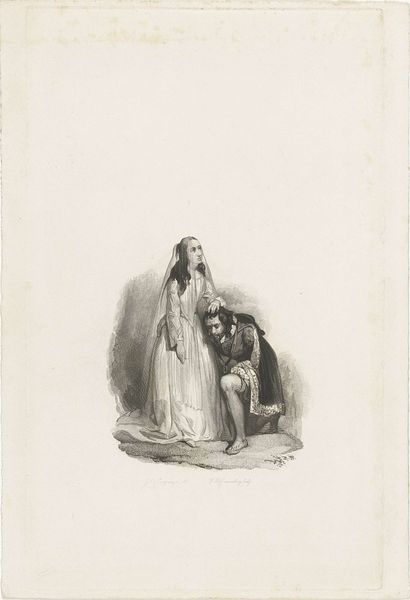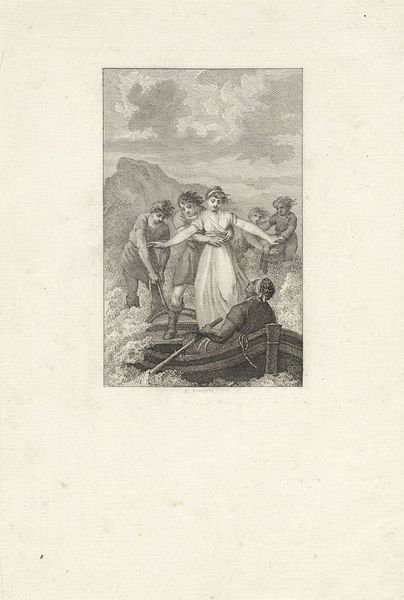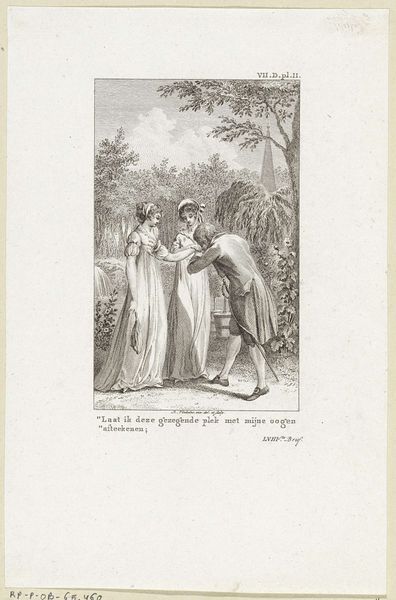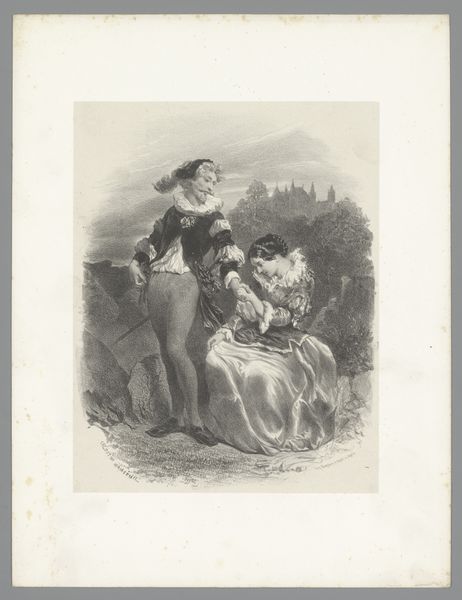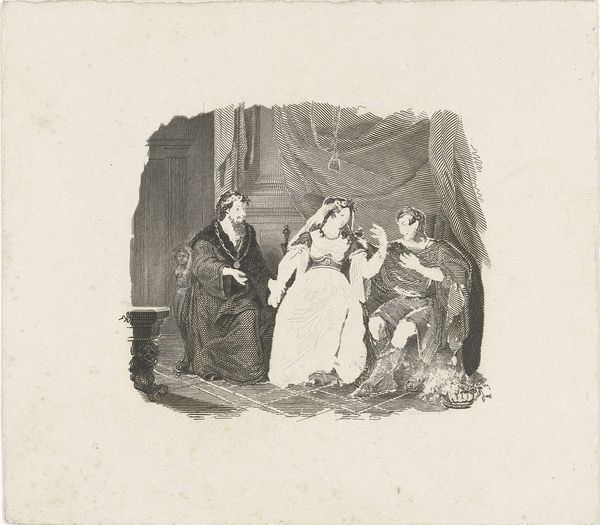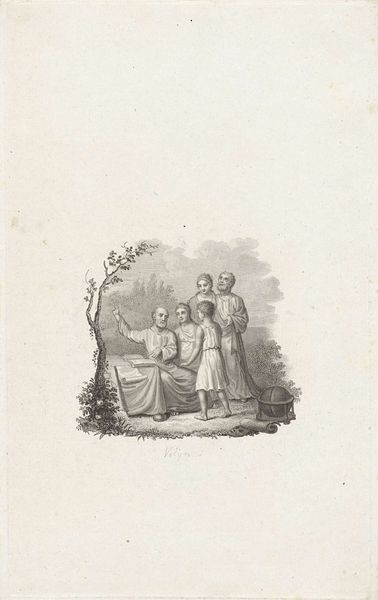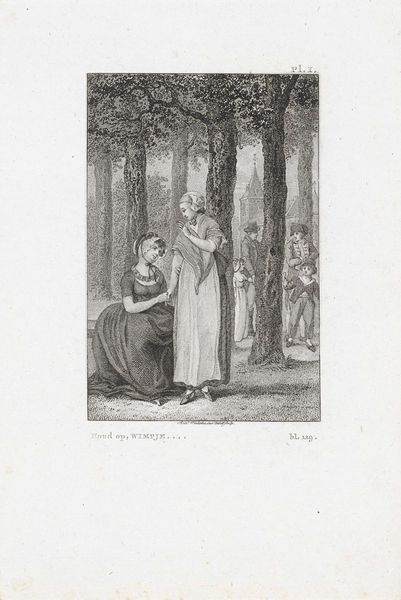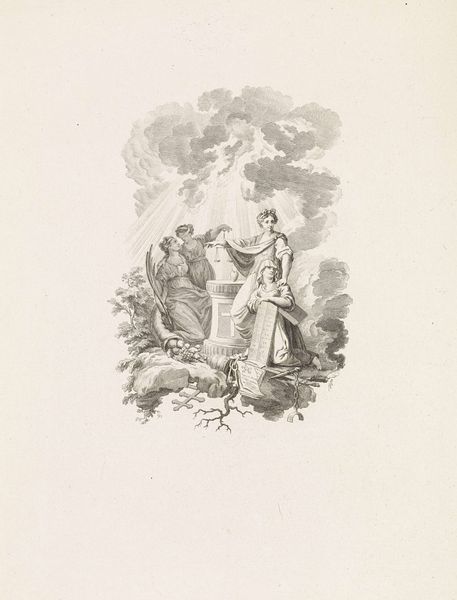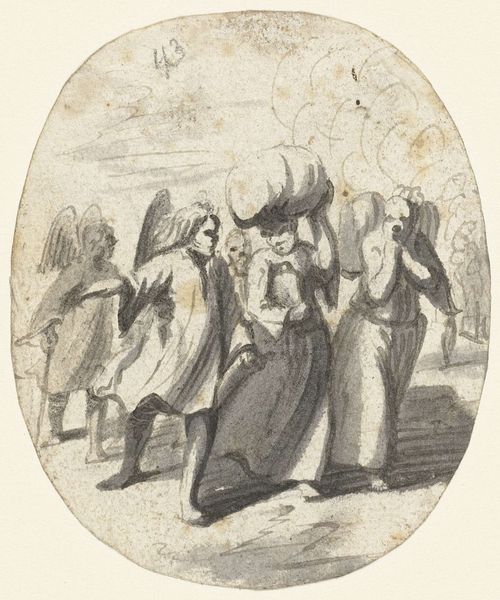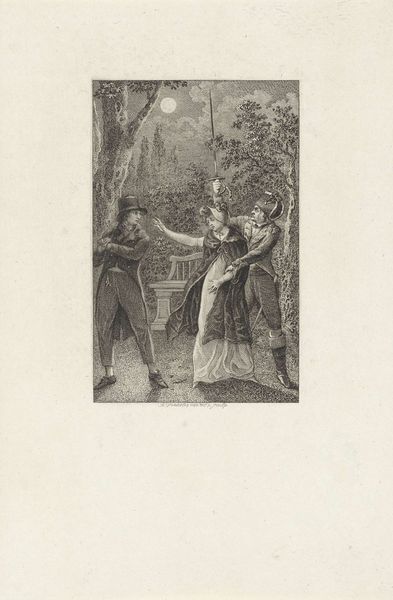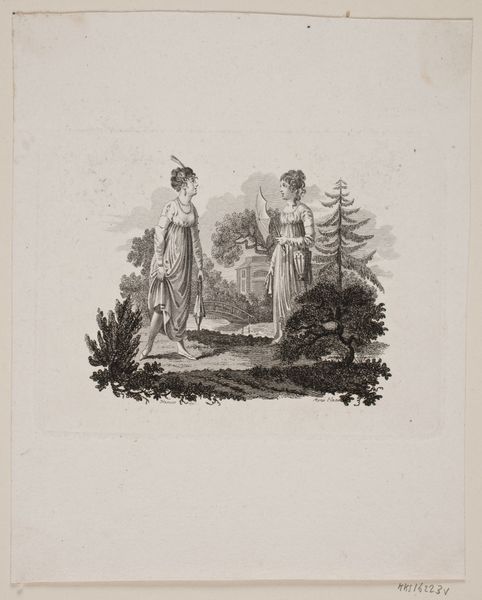
drawing, paper, pencil
#
portrait
#
drawing
#
pencil sketch
#
landscape
#
paper
#
romanticism
#
pencil
#
pencil work
#
genre-painting
Dimensions: height 210 mm, width 120 mm
Copyright: Rijks Museum: Open Domain
Curator: This pencil drawing, created between 1830 and 1845 by Henricus Wilhelmus Couwenberg, is called "Twee waterdraagsters rusten uit," which translates to "Two Water Carriers Resting." It’s currently held at the Rijksmuseum. Editor: The sketch has a quiet, almost pensive mood. The contrast of the figures with the hazy, undefined background gives the entire composition a serene quality. It feels intensely private. Curator: It’s a wonderful example of genre painting from that period, capturing a glimpse into the daily lives of working women. Consider the social context; women's labor, particularly water carrying, was essential yet often overlooked. Editor: Precisely, it’s intriguing to think about what their expressions reveal. One is seated and appears exhausted while the other, standing, seems to be mid-sentence, gesturing as if caught in a debate or perhaps sharing recent news. Are they resting or facing exploitation? Curator: These depictions contributed to the romanticized views of rural life that were prevalent then. Romanticism, of course, frequently aestheticized labor while sometimes ignoring its harsher realities. Editor: Looking closer, notice the precise rendering of the water jug balanced on one woman’s head – the physical strain isn't overtly dramatized, but rather subtly suggested by her posture and facial expression. Is it trying to mask and, if so, does it make any kind of subtle feminist comment? Curator: It does raise critical questions. Was the artist intending to humanize the individuals or simply document them? Considering this was drawn during a period of growing social awareness, this picture seems deeply nuanced for its time. It really compels the viewer to imagine the circumstances. Editor: A brief rest in what was probably an otherwise arduous existence. This look has allowed me to contemplate our perspectives. Thanks! Curator: I couldn’t agree more. I appreciate this new consideration and your willingness to reframe it, it only gives a greater sense of context to the world in which Couwenberg was working.
Comments
No comments
Be the first to comment and join the conversation on the ultimate creative platform.
